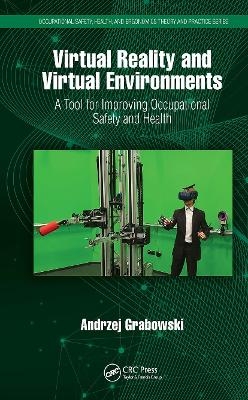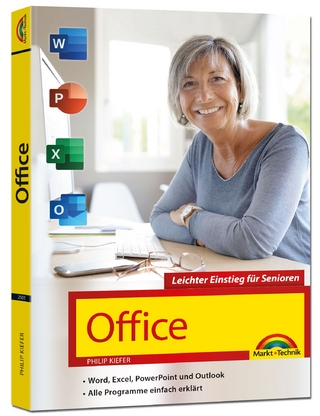
Virtual Reality and Virtual Environments
CRC Press (Verlag)
978-0-367-48994-6 (ISBN)
Virtual reality (VR) techniques are becoming increasingly popular. The use of computer modeling and visualization is no longer uncommon in the area of ergonomics and occupational health and safety. This book explains how studies conducted in a simulated virtual world are making it possible to test new solutions for designed workstations, offering a high degree of ease for introducing modifications and eliminating risk and work-related accidents. Virtual reality techniques offer a wide range of possibilities including increasing the cognitive abilities of the elderly, adapting workstations for people with disabilities and special needs, and remote control of machines using collaborative robots.
Detailed discussions include:
Testing protective devices, safety systems, and the numerical reconstruction of work accidents
Using computer simulation in generic virtual environments
On the one hand, it is a self-study book made so by well-crafted and numerous examples. On the other hand, through a detailed analysis of the virtual reality from a point of view of work safety and ergonomics and health improvement.
Ewa Grabska, Jagiellonian University, Kraków, Poland
Noteworthy is the broad scope and diversity of the addressed problems, ranging from training employees using VR environments with different degrees of perceived reality; training and rehabilitation of the elderly; to designing, testing, modifying, and adapting workplaces to various needs including those of disabled workers; to simulation and investigation of the cause of accidents at a workplace.
Andrzej Krawiecki, Warsaw University of Technology, Warsaw, Poland
Andrzej Grabowski, PhD (Eng), DSc, is Head of the Laboratory of Virtual Reality Techniques at the Department of Safety Engineering at the Central Institute for Labour Protection – National Research Institute Graduate of the Faculty of Physics at the Warsaw University of Technology. His work has been concerned with issues related to neural networks, the application of machine vision in safety systems, nonlinear systems dynamics and the evolution of complex networks and propagation phenomena that take place inside them. Currently, in his work he conducts studies on the application of virtual reality in various fields, including training, cognitive functioning, telepresence and teleoperation and support rehabilitation. He also works on the development of VR techniques conducted; for example, vehicle simulators, HMD type wireless VR goggles, wireless VR gloves with force-feedback and motion capture visual measurement systems are being developed in the laboratory.
1. Introduction to Virtual Reality (VR). 2. Virtual Reality as a Training Tool. 3. Increasing the Cognitive Skills of Workers via Virtual Environments. 4. Testing Workstations in Virtual Reality - An Example of Cooperation with a Robot (Collaborative Robot). 5. Virtual Reality in the Adaptation of Workstations and Workplaces. 6. The Use of Virtual Environments to Support the Selection of Protective Systems for Machines in Order to Reduce the Risk Associated with Their Operation. 7. Numerical Simulations in Virtual Environments. 8. Summary.
| Erscheinungsdatum | 16.07.2020 |
|---|---|
| Reihe/Serie | Occupational Safety, Health, and Ergonomics |
| Zusatzinfo | 15 Tables, black and white; 25 Line drawings, black and white; 37 Halftones, black and white; 54 Illustrations, black and white |
| Verlagsort | London |
| Sprache | englisch |
| Maße | 156 x 234 mm |
| Gewicht | 408 g |
| Themenwelt | Mathematik / Informatik ► Informatik |
| Technik | |
| Wirtschaft | |
| ISBN-10 | 0-367-48994-5 / 0367489945 |
| ISBN-13 | 978-0-367-48994-6 / 9780367489946 |
| Zustand | Neuware |
| Informationen gemäß Produktsicherheitsverordnung (GPSR) | |
| Haben Sie eine Frage zum Produkt? |
aus dem Bereich


